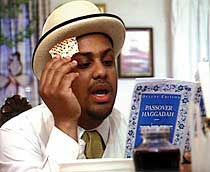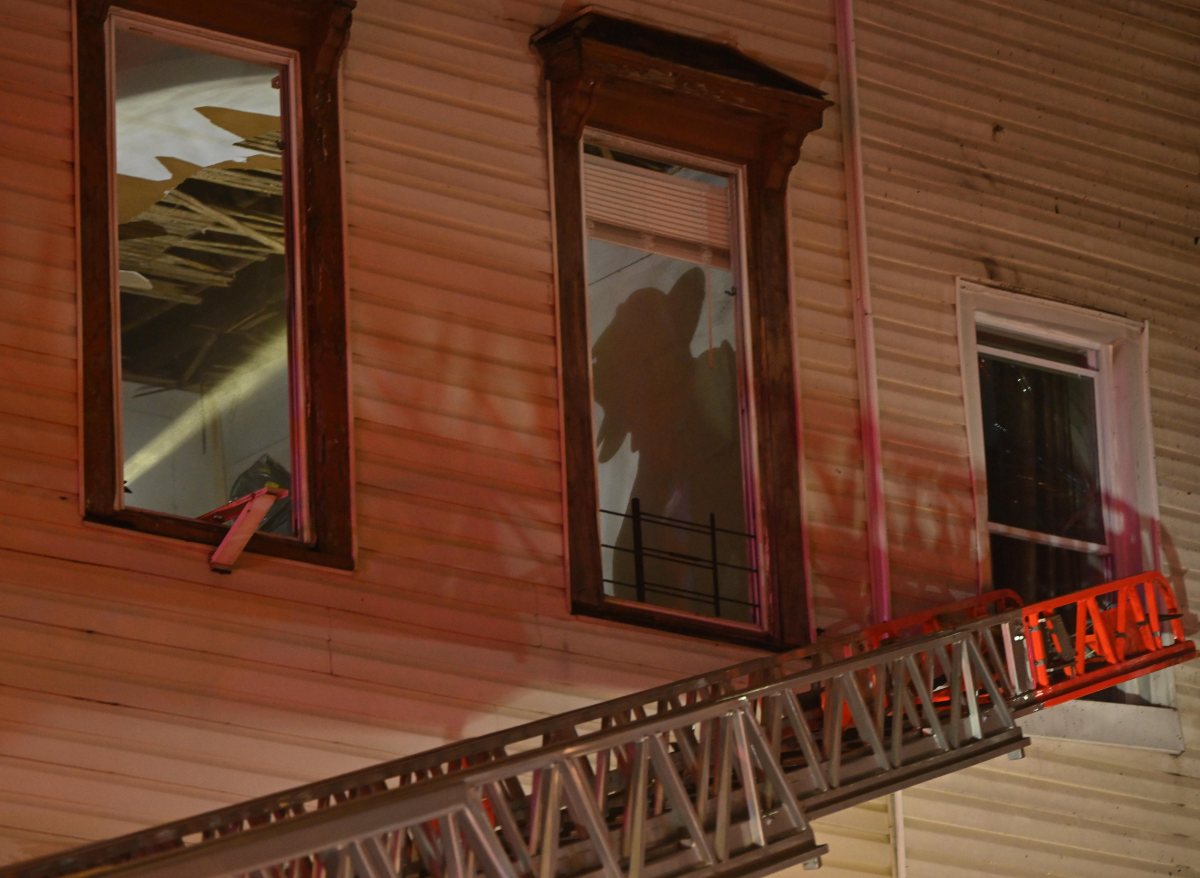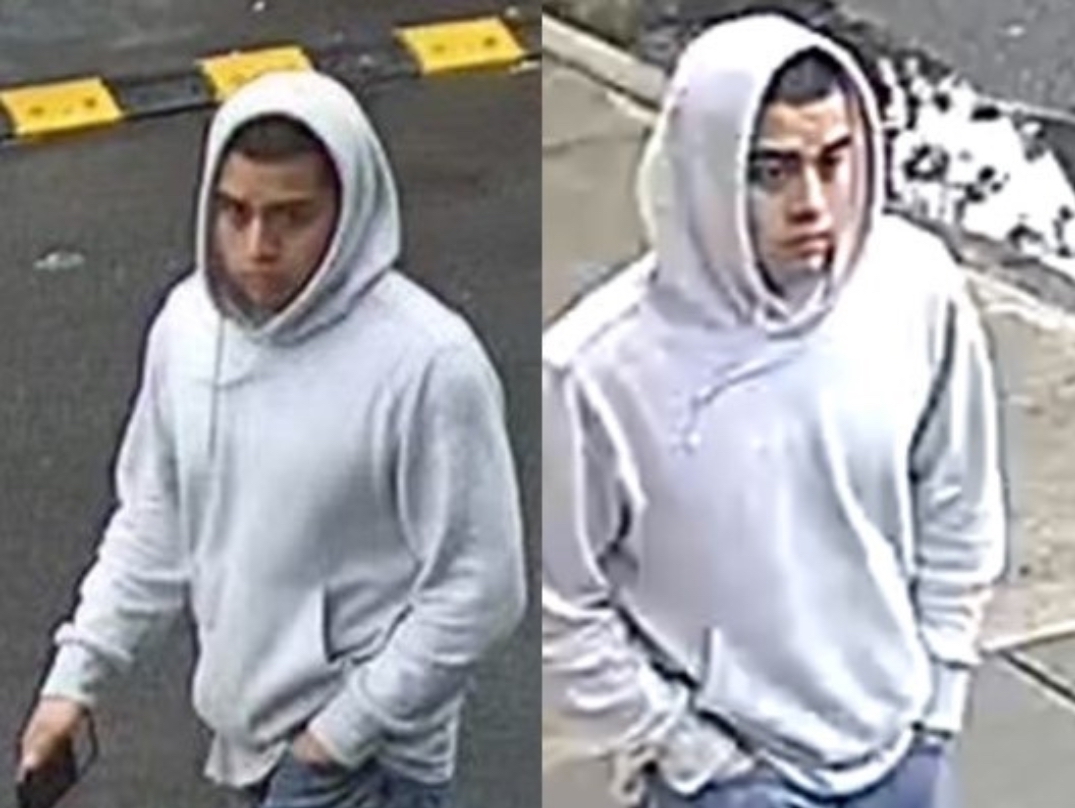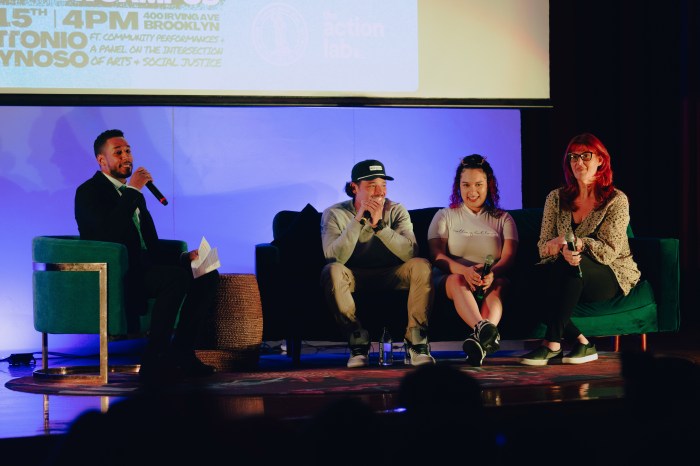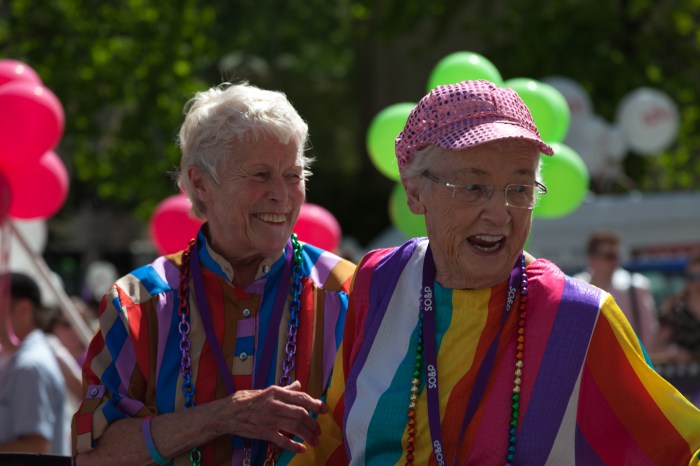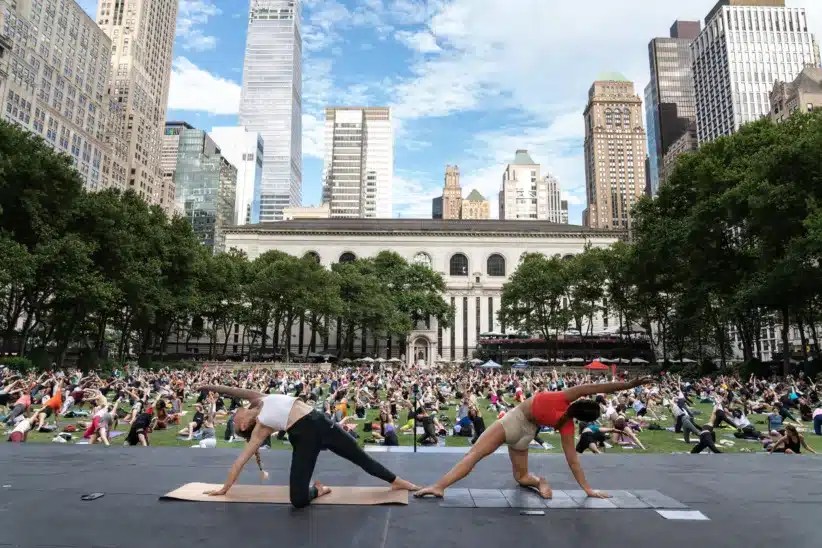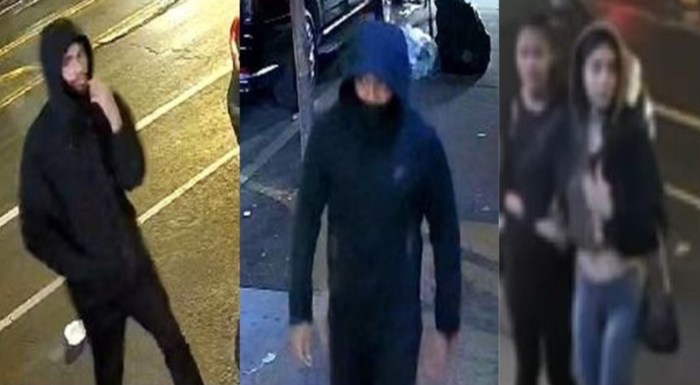"You don’t have to be Jewish to love
Levy’s," went a famous 1960s ad campaign for rye bread.
Similarly, you don’t have to be Jewish to field an entry in the
Brooklyn Jewish Film Festival.
"If we said, ’We’re making a festival and the criterion
is that you have to be Jewish to participate,’ we would have
a large part of the film industry," said the festival’s
curator and co-director Paul Rothman with a chuckle. "Then
there would be no point We go the other way and we’re dealing
specifically with films about the Jewish experience, regardless
of who makes them."
Still, further narrowing was needed to assemble the series’ 30
works, which include features and short subjects, fiction and
non-fiction, premieres and revived classics. So the organizing
theme for the third annual festival, running April 5-12 at BAM
Rose Cinemas, is "Artists and Activists." The thread
connecting most of the films is the overlap between the creative
process and the quest for social justice, in art forms from photography
and painting to dance and theatre, and in areas from the Holocaust
to the Middle East conflict to the rights of the disabled.
For example, the new documentary "Robert Capa: In Love and
War" (screening April 10) portrays the legendary photographer
whose groundbreaking war images expressed his compassion and
political commitment. The 2000 documentary "Keep on Walking"
(April 9 and 12) profiles Joshua Nelson, an observant black Jew
who is also an acclaimed gospel singer and relishes his position
as a bridge between two worlds. ("I’m the Ku Klux Klan’s
worst nightmare!" he exults, laughing.)
"Art and Remembrance: The Legacy of Felix Nussbaum"
(1993), which screens April 6, remembers the artist murdered
in Auschwitz long before his hidden cache of paintings on the
Holocaust came to light and renown. [Five of Nussbaum’s works
are on display as part of the "Art and Auschwitz" exhibit
at The Brooklyn Museum of Art, 200 Eastern Parkway at Washington
Avenue, through June 15.]
Martin Ritt’s 1975 comedy-drama "The Front" (April
12) stars Woody Allen as a conduit for the work of blacklisted
screenwriters in 1950s Hollywood. "The Front" is part
of a sub-festival of three films that reflect the McCarthy era,
the others being the 1996 version of Arthur Miller’s "The
Crucible" (April 9), directed by Nicholas Hytner and a brand-new,
30th anniversary print of Sydney Pollack’s "The Way We Were"
(April 11). The way Rothman describes it, this focus was inspired
largely by the availability in New York City of key creative
personnel. The once-blacklisted screenwriter of "The Front,"
Walter Bernstein, will be present for a Q & A session, as
will "Way We Were" writer Arthur Laurents.
Rothman says such personal appearances are integral to the festival,
which he and his colleagues see as "a forum where people
can get together and not only be entertained and not only be
informed, but can be stimulated to discussion Our only restriction
in inviting people is that we don’t yet have the budget to bring
in people from out of the city, usually. But we’re fortunate
to be in New York City."
Other appearances will include veteran actress Barbara Sukowa,
who plays the martyred revolutionary political theorist in the
1986 biodrama "Rosa Luxemburg" (April 10); choreographer
Pearl Lang, with "The Possessed" (April 6), her 2001
dance version of "The Dybbuk," a classic Yiddish tale
about a love that survives the grave; and a live gospel performance
in English and Hebrew by Joshua Nelson and his 35-member choir
after the closing-night screening of "Keep on Walking."
This packed lineup points to the growth of the Brooklyn Jewish
Film Festival since it was founded in 2000 on the initiative
of Rothman, his co-director Jackie Lew and Rabbi Gerald Weider,
of Temple Beth Elohim in Park Slope.
"Brooklyn happens to be the home to the largest number of
Jews in the world, outside the State of Israel," says Rothman.
"So we felt there was a need and a desire among people to
explore this culture, to explore their identity. And film is
the most powerful medium we have today. Judging by the response
of the community, [the festival] seems to have justified itself."
Beginning with 15 movies and a handful of guests, the event has
already doubled in size, but is still "a grassroots festival
that began and continues with people in Brooklyn who are interested
in the idea," he says. "The whole festival is run by
volunteers – nobody gets paid."
These festival personnel themselves exemplify the natural marriage
between Judaism and activism on which this year’s edition is
built.
"The search for social justice has been a long Jewish tradition,"
observes Rothman. "Jews have often been very involved in
movements – the civil rights movement and revolutionary movements
I think the main source of it comes from the Bible, from Isaiah
and the other prophets. There’s an exhortation: ’Justice, justice,
run after it!’
"There’s another concept in Jewish culture called tikkun
olam, which means ’repairing the world.’ This concept is actually
from the Kabbalah, the Jewish book of mysticism. It says that
people have a mission to fix what’s wrong with the world that’s
part of the purpose of our life."
"The Third Annual Brooklyn Jewish Film Festival: Artists
and Activists" will run April 5-12 at BAM Rose Cinemas,
30 Lafayette Ave. at Ashland Place in Fort Greene. Tickets are
normally $10, and on weekdays, $7 for students and $6 for seniors
and children under 12.
Tickets for the opening night party following the New York premiere
of "Taking Wing," directed by Steve Suissa, on April
5 are $15. For reservations, call (718) 768-1860.
For schedule and other information, call (718) 636-4100 or log
on to www.bam.org.


